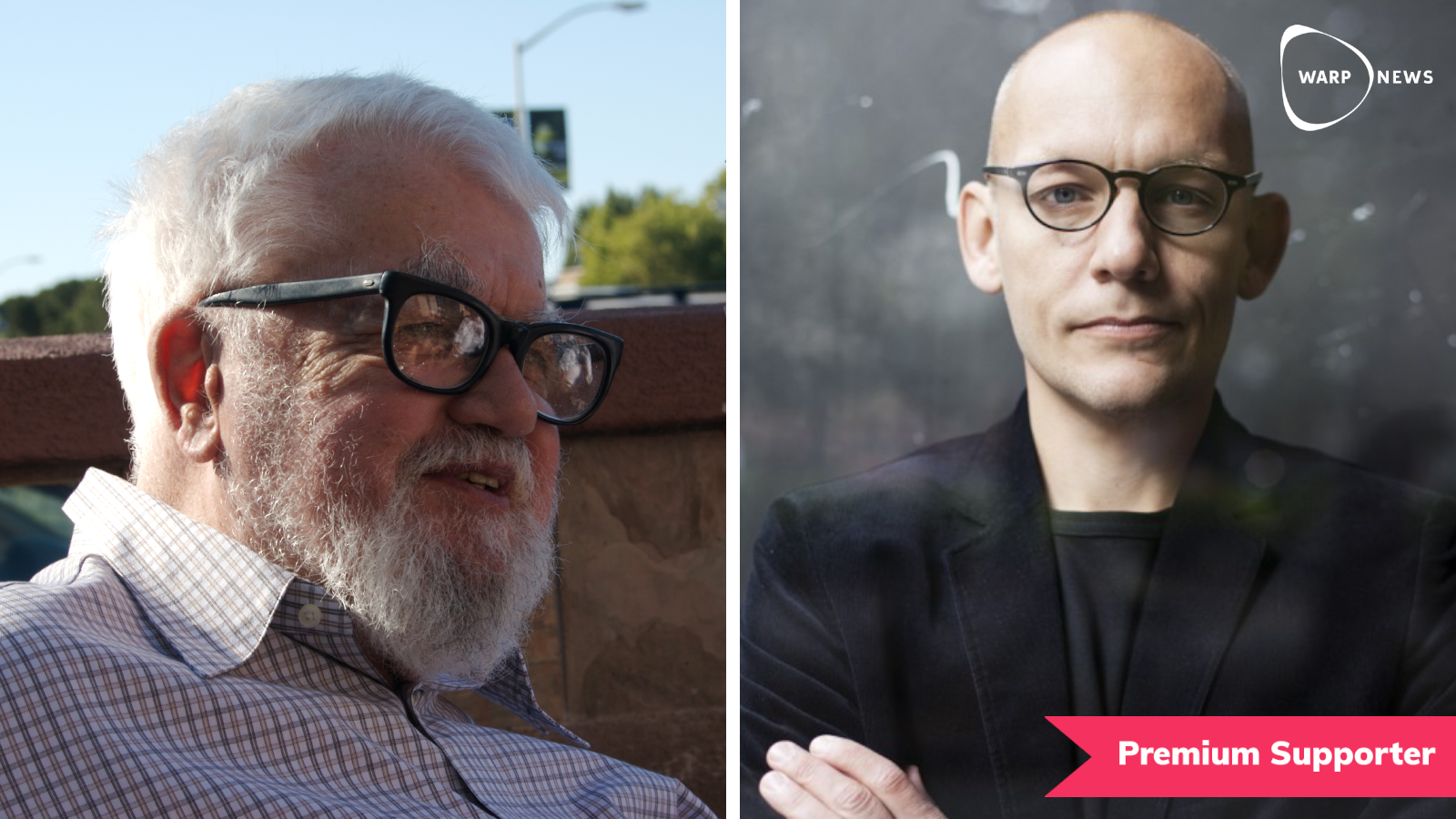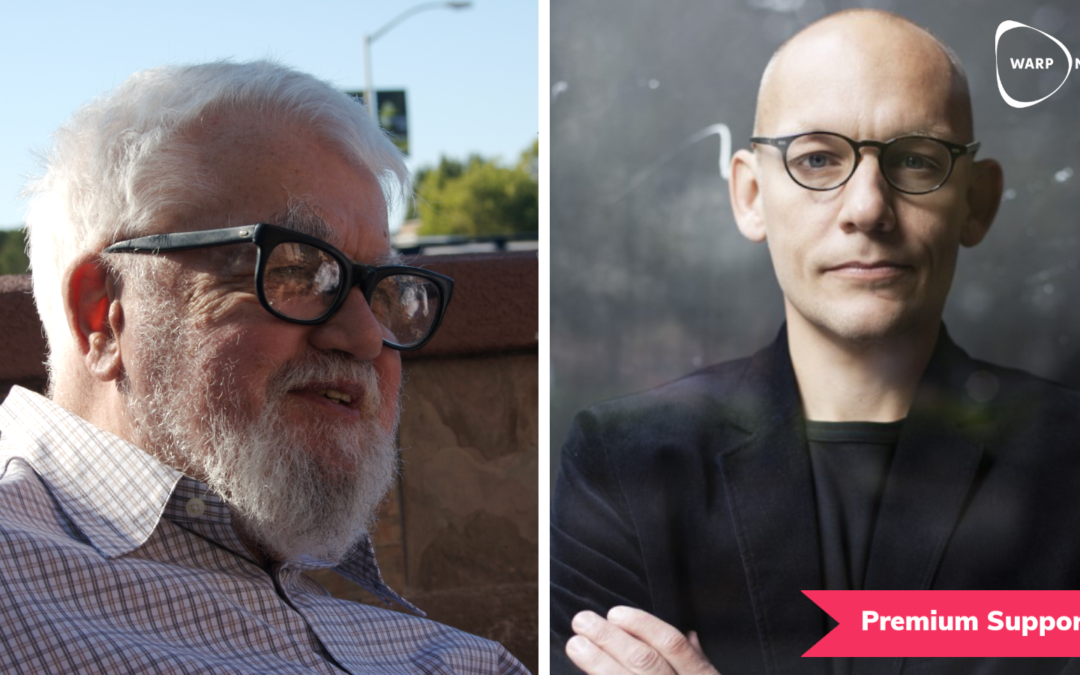
It’s 2006, and I’m in Stanford. Or on the outskirts of the university campus, in the small residential area where retired professors and academics often linger after a long career at the university. It’s a quiet suburb, with typical California, low-rise buildings that will withstand the great earthquake that we know should come within a hundred years or so.
I have arranged a meeting with Professor John McCarthy to interview him for an article on AI. McCarthy was one of the people who coined the term “artificial intelligence” in 1956, at a summer workshop that Stanford arranged together with a number of other universities.
Our interview is also supposed to be about what happened with the AI development, in 2006 the field of research was almost as calm as that summer afternoon. My article idea is simple: I thought I would ask him if he was disappointed that no big breakthroughs had been made in AI, and then explore why that was the case.
McCarthy opened the door and invited me in. He explained that he had about an hour for me and then he would work on his his science fiction short story about neutrino rays. The interview could not take too long.
I sat down on the couch, prepared a notebook and a computer, and started right away. I asked: “Professor McCarthy, are you, 50 years after you started researching AI, not disappointed that it has not come any further?”
McCarthy looked at me with genuine surprise. McCarthy looks like a small, rather grumpy, owl – but now he mostly stared at me with a mixture of confusion and sympathy.
“That was the most stupid question I have ever got” he said.
I began to apologize, but he waved his hand in dismissal and said:
“”This is how it is: technological advances are not linear. First the concepts must be in place and then the technology and the discoveries can come. 50 years after technology and the discoveries can come. 50 years after Mendel discovered the genetic predisposition, not much had happened. But during the following 50 years, we mapped human DNA. All development starts after 50 years. AI has just taken off. “
There were few signs of what McCarthy was talking about in 2006, but now it’s easy to see that the professor was right. If he had not passed away, I would have sent him a follow-up where I admitted how wrong I was, and I would have asked how he could see things so clearly. However, I was able to answer that question without talking to him.
McCarthy was not only a computer scientist, he also wrote a lot about the future. The future, according to him, was extremely bright. McCarthy was almost provocatively optimistic, so much so that he beats the most optimistic thinkers today.
Unbothered by peoples opinions
When asked how we would solve the energy issue, he quickly answered that a combination of nuclear power and hydrogen is enough for a couple of billion years. Billions! That is world class optimism. However, McCarthy’s optimism quickly became provocative, as he also refused to acknowledge that there is a problem when biodiversity is decreasing, for example. For him, there is no point in diversity in itself. McCarthy argued that the important thing was checking the stability of ecosystems – which he believed was largely unthreatened.
Positions like these got him a lot of enemies, and many felt that McCarthy’s prediction of a couple of billion years of continued growth was irresponsible, on the verge of repulsive. However, these views did not bother him the slightest, and he said that there were undoubtedly risks with perpetual growth and material progress – but that those risks were nothing compared to the dangers that stagnation entails.
Humankinds future, McCarthy said, was long. Around 10 to the power of 25 years, or in other words: a little more than a septillion years, under the condition that we seize the opportunities of progress.
This is where you realized that the sort of optimism that McCarthy advocated, is in a league of its own. I usually ask groups I lecture if they think
that humanity will remain in 100, 1000 or 1,000 000 years, and even if there are some hand in the air left at 1000 years, most of them disappear at one million.
But according to McCarthy, we have barely started after a million more years. McCarthy himself was aware that he had redefined optimism, and used to jokingly define himself as an “extreme optimist”. When asked what that meant, he answered in a flash:
“I think it will go well for humanity even if it does not do as I recommend”.
More than anything, McCarthy’s optimism is a method; he who believes that we can live on as civilization for a septillion years sees a different world, than he who believes that we are in the twilight of humankind.
On the one hand, an optimism like this borders to fatalism, on the other hand it demands a revaluation of values, like that the german philosopher Nietzsche wrote about, because religion has left the stage. An optimism that rebuilds the world with man as the center and creator.
I myself am not an extreme optimist, but I often return to McCarthy’s writings and thoughts, because the unreasonableness in them may only be unreasonable now, and not in another 50 years.
…
Nicklas Berild Lundblad is one of Warp News’ experts. Nicklas Berild Lundblad is global head of the tech policy team at Stripe and has previously worked as head of community planning at Google. He has a PhD in computer science, has a law degree with a specialization in IT law and a bachelor’s degree in theoretical philosophy.
Read more from Nicklas Berlind Lundblad
🌳 The optimistic future is a tree (warpnews.org)
❓ The question is the weapon of the optimist (warpnews.org)





